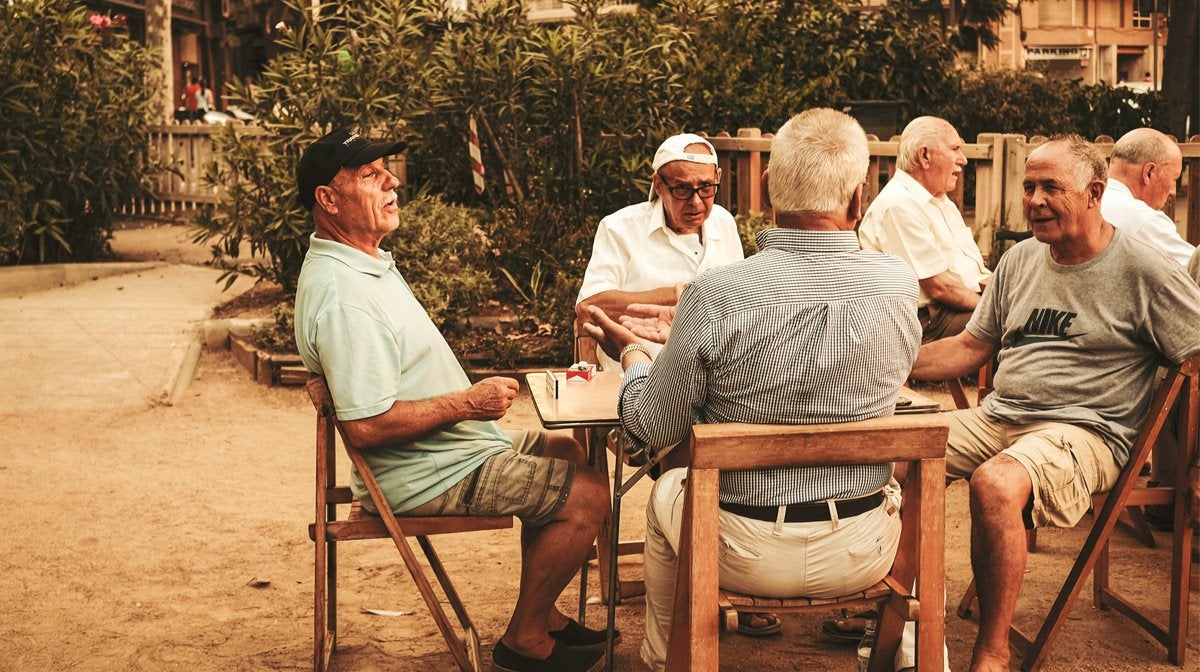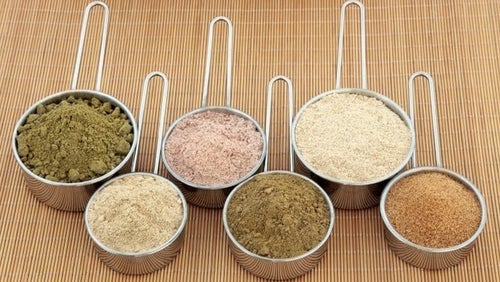Blue Zones: Healthy Habits & Lifestyle Lessons For Longevity

Have you ever wondered why some places in the world boast a significantly longer life expectancy than others? You’re not the only one. These areas, known as “blue zones”, have been studied extensively by researchers, who have tried to find out the secrets to their inhabitants’ prolonged good health.

What are Blue Zones?
Blue zones are geographical hotspots known for having exceptionally high life expectancies compared to the rest of the world.1 Inhabitants of blue zones often live happily into their hundreds, 15 years longer than the UK average.2
Explorer and journalist Dan Buettner was one of the first to identify these regions and study why their inhabitants live such long lives. In 2004, he and his team identified five areas across the world with notably long life expectancy.3
Where are the 5 Blue Zones?
Sardinia, Italy
This blue zone is home to the world's highest population of men living into their 100s. The mountainous terrain encourages an active lifestyle and the diet features plenty of whole grains and plant-based foods, with meat reserved for the occasional treat.
Okinawa, Japan
Okinawa, the fifth-largest Japanese island, is known for having the world’s longest-living women. Strong social networks and a sense of community are thought to be a potential reason for this longevity. It’s well established that loneliness and social isolation are linked to an increased chance of early death.4,5,6,7
However, it's worth noting that life expectancy has been falling in the region, possibly due to the increasing popularity of Western-style diets.8
Nicoya, Costa Rica
Nicoyans place great importance on faith and family, and their "reason to live" (plan de vida) keeps older members of the community active far into their later years, which can improve life expectancy.9,10 Their diet contains little to no processed foods, and they consume tropical fruits rich in essential nutrients, fibre and antioxidants.
Ikaria, Greece
Ikaria, one of the Greek islands, boasts lower rates of serious disease compared to other regions.3,11 Its inhabitants eat a typical Mediterranean diet of fruits, vegetables, whole grains, olive oil and pulses, and the collective fondness for afternoon naps may also play a part in good health.12
Loma Linda, California
The Seventh-day Adventist community in Loma Linda, California, on average live a decade longer than their compatriots.3 Their predominantly vegetarian diet includes leafy greens, nuts and legumes, and they live in tight-knit communities. Weekly breaks for the Sabbath encourage plenty of opportunity for rest and religious reflection.

Common Nutrition Factors in Blue Zones
Fresh Fruit & Veg
Most blue zone diets are predominantly plant-based, with little meat and plenty of fruit and vegetables.3
Eating more than five servings of fruits and vegetables daily has been associated with a lower risk of serious disease.13,14,15 These foods also provide essential vitamins, minerals, and antioxidants, which protect against oxidative stress, a contributor to many of these diseases.16,17
Plant Protein
Although many blue zone inhabitants do eat meat, legumes, like lentils, beans and peas, and soy products are often the primary source of protein. These foods also tend to be high in fibre.
Oily fish, typical of the Mediterranean diets of Sardinia and Ikaria, provide plenty of heart-healthy omega-3s.18,19,20,21 Red and processed meats — widely considered bad for health — are consumed sparingly or not at all.22,23,24,25
Plenty of Fibre
Blue zone diets feature plenty of whole grains, nuts, and seeds, all rich in fibre. Fibre supports gut health by keeping us regular and maintaining good gut health, which can help prevent the development of serious health conditions.26,27,28,29,30
That’s not all fibre’s good for though. High-fibre diets are also linked to a lower risk of heart disease, as fibre helps to lower cholesterol absorption.31,32
Fabulous Polyphenols
Polyphenol-rich foods, like berries, grapes, turmeric, red wine, coffee, and cocoa, are staples in many blue zone diets. Extra virgin olive oil, abundant in polyphenols, is the fat of choice in Sardinia and Ikaria.33
Flavonoids, a type of polyphenol, act as potent antioxidants and boost heart health.34 Cannonou, Sardinia’s local wine, stands out for its exceptionally high flavonoid content.3
Blue Zone Lifestyles
Strong Social Bonds
The importance of family and community is a trait shared by all the blue zones. Frequent socialising has been linked with extended lifespan.6,7,35
Staying Active
Exercise is woven into the daily life of blue zone inhabitants from early years into old age. Regular physical activity is not only good for physical health but also mental health and overall quality of life. 36 Even low-volume activity can significantly extend life expectancy and lower the risk of all-cause mortality.37
Balance
Blue zone cultures all have a healthy work-life balance, with family always the priority. Taking time to unwind can reduce overall physical and psychological stress, which has a positive effect on health.38,39
Blue Zone FAQs
Do eggs feature much in blue zone diets?
Yes, eggs are regularly consumed in blue zone diets. Contrary to some beliefs, evidence shows that cholesterol is not as bad as once believed.40,41
Do people in blue zones drink alcohol?
Moderate alcohol consumption is common in many blue zones and may offer some health benefits. Wine, in particular, is rich in flavonoids and can have sedative effects, potentially reducing stress levels.34
However, recent research suggests that moderate alcohol consumption may actually not have that many benefits.42
Do people in blue zones drink coffee?
Coffee is a regular feature of blue zone diets. When consumed in moderate amounts, it is associated with reduced risks of certain health conditions.43
Is there a blue zone in the UK?
No, there is currently no officially recognised blue zone in the UK.
Take home message
While blue zones offer valuable insights into what leads to long, healthy, happy lives, it’s impossible to pinpoint exactly what the reasons are.
Diets and active lifestyles deeply rooted in tradition and culture clearly play a significant role, but that doesn’t necessarily mean that we will live into our hundreds if we were to adopt them wholesale.
But while it’s near impossible to guarantee you can live happily into your hundreds, there are things you can do to help protect your health and wellbeing as you get older.
- Reduce intake of red and processed meat.
- Eat more whole grains, legumes and pulses in your diet.
- Replace saturated fats with unsaturated fats, like olive oil and oily fish.
- Limit alcohol consumption.
- Get plenty of rest and relaxation.
- Make time for family and friends.
You may not be able to guarantee a long life, but by embracing these behaviours you may be able to live a healthier, happier life. And that’s what matters most, isn’t it?
READ THESE NEXT:

5 Maca Benefits | What Is Maca Root & What Does It Do?
Feeling tired? This supplement might be what you've been looking for.

What Should I Eat 30 Minutes Before A Workout?
Nutritionist reveals how to fuel right.







